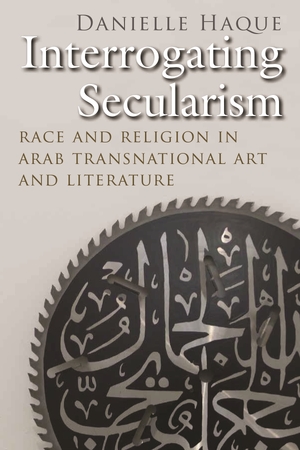"Hartman deftly analyzes Arab American work with Black Studies as a critical lens, offering radical reading strategies that fundamentally shift how we understand Arab American letters. Breaking Broken English should be required reading for anyone seeking to understand the field."—Therí Pickens, author of New Body Politics: Narrating Arab and Black Identity in the Contemporary United States
"Michele Hartman's Breaking Broken English... interrogates how Arab American literature is informed and shaped by Black literary production, with an emphasis on linguistic and aesthetic similarities."—Commonwealth Essays and Studies
"Michelle Hartman plumbs the polysemy of ‘breaking’ with rich analytical acuity, compelling us to read solidarity across a wide range of literary and linguistic practices."—Keith Feldman, University of California, Berkeley
"Hartman’s thought-provoking analysis of a variety of work from poetry to short fiction to novels to memoir offer an understanding of how language and racial politics have impacted the way Arab American position themselves in American society."—Pauline Kaldas, Hollins University
Description
Black-Arab political and cultural solidarity has had a long and rich history in the United States. That alliance is once again exerting a powerful influence on American society as Black American and Arab American activists and cultural workers are joining forces in formations like the Movement for Black Lives and Black for Palestine to address social justice issues. In Breaking Broken English, Hartman explores the historical and current manifestations of this relationship through language and literature, with a specific focus on Arab American literary works that use the English language creatively to put into practice many of the theories and ideas advanced by Black American thinkers.
Breaking Broken English shows how language is the location where literary and poetic beauty meet the political in creative work. Hartman draws out thematic connections between Arabs/Arab Americans and Black Americans around politics and culture and also highlights the many artistic ways these links are built. She shows how political and cultural ideas of solidarity are written in creative texts and emphasizes their potential to mobilize social justice activists in the United States and abroad in the ongoing struggle for the liberation of Palestine.
About the Author
Michelle Hartman is professor of Arabic literature and director of the Institute of Islamic Studies at McGill University as well as a research associate at the Simone de Beauvoir Institute at Concordia University. She is the author of several books, including Native Tongue, Stranger Talk: The Arabic and French Literary Landscapes of Lebanon.
March 2019



